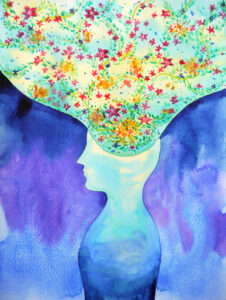 Embodied cognition is a contemporary theory that breaks the dualism of body and mind by suggesting that meaning, understanding, and rationality arise from the patterns of our bodily experiences.
Embodied cognition is a contemporary theory that breaks the dualism of body and mind by suggesting that meaning, understanding, and rationality arise from the patterns of our bodily experiences.
From the perspective of embodied cognition theorists, knowledge develops through the interactions of a human organism with its environment. Physical action is the foundation for thinking, feeling, imagining, and other processes once believed to be purely mental operations.
This current foregrounding of bodily experience has interesting connections to Laban’s effort theories. Find out more in the next blogs.
